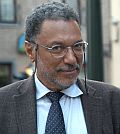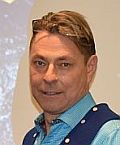COVID-19 PANDEMIC / WORDS OF WISDOM FROM THE WORLD’S TOP FISHERY SCIENTIST: “We transform the world, but we don’t remember it. We adjust our baseline to the new level, and we don’t recall what was there,” states Dr. Daniel Pauly when he explains the Shifting Baselines Syndrome, a term that he coined for an essay in 1995, and that helped to start the field of historical ecology

These are challenging and life-altering times as all of us cope with the COVID-19 pandemic. In a very real sense, the situation parallels how it must have felt in 1940 when WW2 changed everything. Our COVID-19 response proves British Columbians can mobilize in a common cause when confronted with a life-altering emergency that impacts all. Viewed in this context, Dr. Daniel Pauly offers timely words of wisdom for “bending the curve” in the years and decades ahead to achieve ecological restoration and, in the process, adapt to a changing climate. When there is a will, there is a way. Keep calm and carry on.










